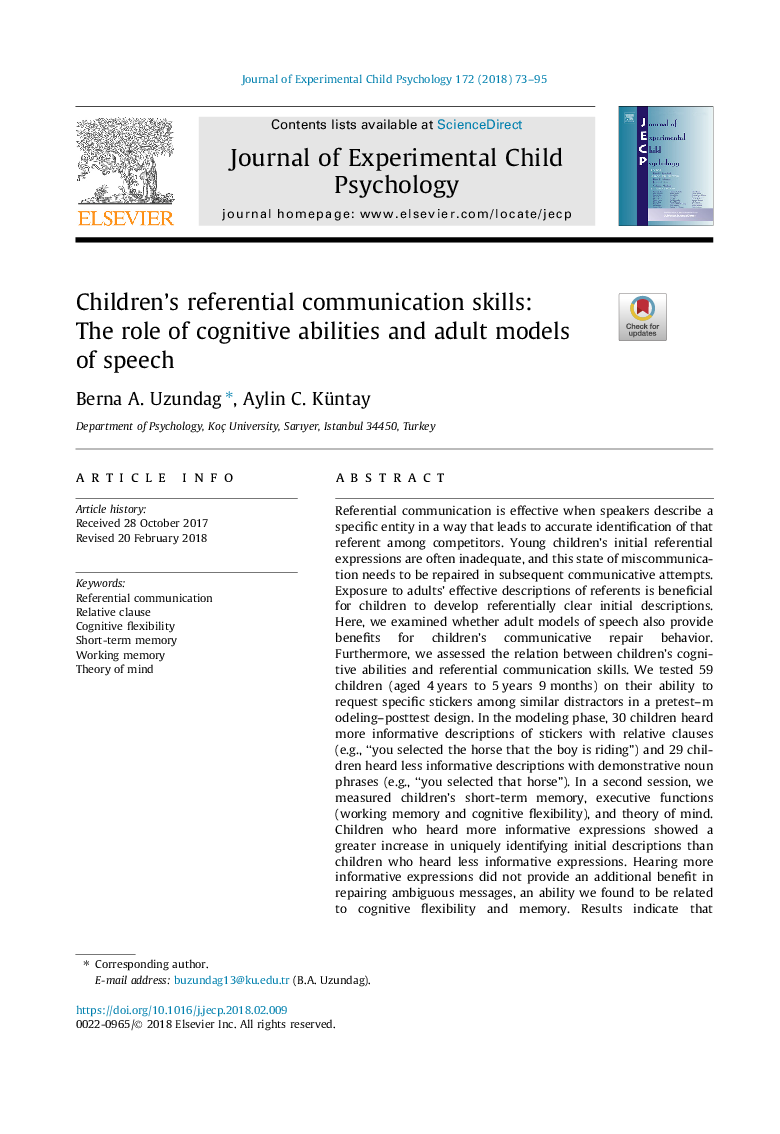ترجمه فارسی عنوان مقاله
مهارت های ارتباطی کودک مرجع: نقش توانایی های شناختی و مدل های بالینی سخنرانی
عنوان انگلیسی
Childrens referential communication skills: The role of cognitive abilities and adult models of speech
| کد مقاله | سال انتشار | تعداد صفحات مقاله انگلیسی |
|---|---|---|
| 119737 | 2018 | 23 صفحه PDF |
منبع

Publisher : Elsevier - Science Direct (الزویر - ساینس دایرکت)
Journal : Journal of Experimental Child Psychology, Volume 172, August 2018, Pages 73-95
ترجمه کلمات کلیدی
ارتباط ارجاع، بند نسبی، انعطاف پذیری شناختی، حافظه کوتاه مدت، حافظه کاری، نظریه ذهن،
کلمات کلیدی انگلیسی
Referential communication; Relative clause; Cognitive flexibility; Short-term memory; Working memory; Theory of mind;

